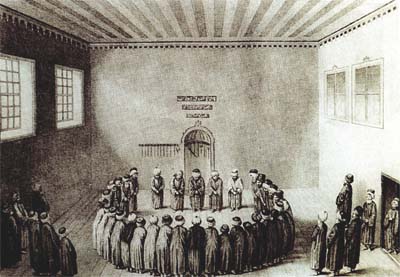Adulting 101
- Introduction to the Course
- Learn to Cook
- Personal Finance and Budgeting
- Tax Management
- Emotional Health & Relationships
- Time Management
- Exercise
- Meditation
- Self-directed Learning
- Case Studies and Discussion
- Conclusion & Way Forward
Meditation
Introduction to Meditation

Mental practice of focus on a particular object, thought or activity.
Meditation is a practice that has been used for thousands of years to promote relaxation, focus, and self-awareness. It involves techniques, such as mindfulness, or focusing the mind on a particular object, thought, or activity, to train attention and awareness, and achieve a mentally clear and emotionally calm and stable state.
Definition of Meditation
Meditation is a practice where an individual uses a technique – such as mindfulness, or focusing the mind on a particular object, thought, or activity – to train attention and awareness, and achieve a mentally clear and emotionally calm and stable state. It is a means of transforming the mind, using techniques to cultivate concentration, clarity, emotional positivity, and a calm seeing of the true nature of things.
Brief History of Meditation
Meditation has been practiced since antiquity in numerous religious traditions and beliefs, often as part of the path towards enlightenment and self-realization. The earliest records of meditation (Dhyana) come from the Hindu traditions of Vedantism, around 1500 BCE. The practice spread eastward through the Middle East, Asia, and Russia, and westward to the Americas, Europe, and Australia.
Different Types of Meditation
There are many types of meditation, each with its unique focus and benefits. Here are a few:
-
Mindfulness Meditation: This type of meditation is based on being mindful, or having an increased awareness and acceptance of living in the present moment.
-
Transcendental Meditation: A simple, natural technique where you silently repeat a personally assigned mantra, such as a word, sound or phrase, in a specific way.
-
Loving-Kindness Meditation: Also known as Metta meditation, its goal is to cultivate an attitude of love and kindness toward everything, even a person's enemies and sources of stress.
The Role of Meditation in Different Cultures and Religions
Meditation plays a significant role in many cultures and religions. In Buddhism, meditation is a means to enlightenment and nirvana. In Hinduism, it's used to understand the true nature of Brahman, or existence itself. In Christianity, it's used to focus on the presence of God. In secular contexts, it's often used for its mental and physical benefits, such as stress reduction.
In conclusion, meditation is a powerful tool that can help individuals achieve a greater sense of peace, focus, and self-awareness. It's a practice that has stood the test of time, crossing cultural and religious boundaries to help countless individuals find inner peace and clarity.